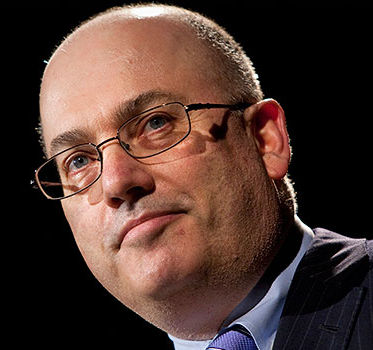Great Neck native Steven Cohen’s embattled hedge fund SAC Capital, which was hit with a record $600 million Securities and Exchange Commission settlement earlier this year, has agreed to plead guilty to insider trading charges and pay an additional $1.2 billion in fines, according to the Manhattan U.S. Attorney’s office.
The 1.2 billion fine is worth far more than the $275 million prosecutors allege that SAC Capital made off illegal trades and the firm will also shutter its investment advising operations and no longer accept outside investments.
“Today, SAC Capital, one of the world’s largest and most powerful hedge funds, agreed to plead guilty, shut down its outside investment business, and pay the largest fine in history for insider trading offenses,” Manhattan U.S. Attorney Preet Bharara said in a press release. “That is the just and appropriate price for the pervasive and unprecedented institutional misconduct that occurred here.”
Bharara’s release also indicated the possibility of further prosecution, noting that the plea does not grant immunity to any individuals affiliated with SAC Capital.
Though the SEC has opened a civil case against Cohen, he has not been criminally charged, and the company’s guilty plea does not include admissions of guilt from any individuals involved in the case.
The plea bargain includes two components, according to the release – a guilty plea to criminal charges that include securities fraud and wire fraud, and a judgment of civil money laundering and forfeiture claims. Each component will incur a $900 million judgment, with the $616 million already levied by the SEC credited against the total, leaving the company with an additional $1.2 billion in fines.
Cohen, who is also personally facing ongoing administrative charges from the Securities and Exchange Commission, is at the center of a years-long investigation into what federal authorities have described as a corporate culture that turned a blind eye to or encouraged insider trading.
SAC Capital has been the subject of a long-running insider trading probe that reached a peak this year, when it agreed to a record $600 million settlement, in addition to administrative charges against Cohen and criminal charges against the company. The company is on the hook for $1.8 billion in federal fines, between the new plea deal and the SEC settlement.
The SEC’s administrative charges, which will be heard before an SEC judge and carry potential penalties ranging from fines to prohibitions against future work in the financial industry, are the first legal action taken directly against Cohen. While traders working directly under Cohen are facing criminal insider trading charges, Cohen has thus far not faced prosecution for what the SEC describes as illegal trades worth more than $275 million.
“Hedge fund managers are responsible for exercising appropriate supervision over their employees to ensure that their firms comply with the securities laws,” said Andrew J. Ceresney, co-director of the SEC’s Division of Enforcement, in a July statement. “After learning about red flags indicating potential insider trading by his employees, Steven Cohen allegedly failed to follow up to prevent violations of the law. In addition to the more than $615 million his firm has already agreed to pay for the alleged insider trading, the SEC’s enforcement division is seeking to bar Cohen from overseeing investor funds.”
The SEC’s legal filing alleges that Cohen failed to prevent traders Matthew Martoma and fellow Great Neck native Michael Steinberg, both of whom are facing criminal charges, from making illegal trades despite being in possession of “highly suspicious information” about their activities.
An SAC Capital spokesman told the New York Times in July that Cohen acted appropriately and would contest the charges.
Cohen, a Greenwich, Conn. resident, is also a major philanthropist. The Steven and Alexandra Cohen Children’s Medical Center of New York in New Hyde Park, which is part of the North Shore-LIJ Health System, and a center at Mt. Sinai Hospital in New York City are named after him.
Steinberg, a 40-year-old Great Neck native and also a Great Neck North High School alumnus, was arrested by FBI agents outside his Manhattan apartment building in March. Cohen, who also graduated from Great Neck North High School, has not been hit with any criminal charges, but according to media reports it’s not for lack of trying.
A detailed Vanity Fair article in June portrayed Southern District New York U.S. Attorney Preet Bharara as the Ahab to Cohen’s Moby Dick, and described Cohen as the central figure of seven years of investigations that have led to convictions or confessions from 71 people.
According to the SEC filing, Cohen directly supervised Martoma and Steinberg as they conducted illegal trades.
Cohen allegedly had information that Martoma may have committed insider trading in the short-selling of stock from the pharmaceutical company Elan and Wyeth, but did nothing to stop it.
The SEC also alleges that Martoma held a 20-minute phone conversation with Cohen after receiving inside information of a less-than-promising drug trial, after which Cohen approved the sale and shorting of Elan and Wyeth stock without investigating whether Martoma had inside knowledge.
The SEC’s complaint also alleges that Cohen failed to investigate the 2008 selling of Dell shares despite receiving e-mails from employees at SAC subsidiary Sigma Capital that professed insider knowledge of Dell’s upcoming financial results.
Steinberg, a portfolio manager at Sigma Capital and Jon Horvath, a Sigma research analyst, allegedly sent an e-mail discussing Horvath’s obtaining of early Dell profit information and forwarded that e-mail to Cohen.
Minutes after receiving the e-mail, Cohen allegedly began to sell his $11 million in Dell stock, according to the filing.
Dell’s stock dropped sharply after the public release of its financial statements and Cohen allegedly e-mailed Steinberg “Nice job on Dell.”
Cohen avoided $1.7 million in losses by selling the Dell shares, according to the SEC filing.



